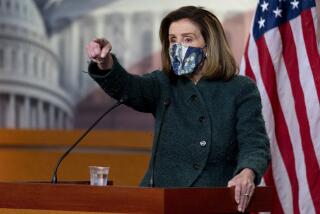Catholic Teaching Isn’t Just an Opinion
One may wonder whether the theologian is anything more than an apologist for whatever the hierarchy is teaching. To present and explain the actual teaching of the (Catholic) Church is indeed an important part of the theologian’s task, but as I have already suggested, theology has a critical and creative role in grappling with new and unsettled questions.
A new development of doctrine, when it begins to emerge, may be hard to distinguish from a deviation. What appears as dissent may eventually prove to have been a contribution to a more adequate formulation of the faith. Just as industries have chemistry laboratories and governments have planning divisions, so the church needs a research arm in which difficult questions are raised and new ideas are debated. Normally, such proposals are set forth in theological conferences and written up in specialized publications for the scrutiny of peers.
If a somewhat venturesome theory is put before the general public in popularized form, the author would be well advised to warn the reader that the opinion is a personal one that is being submitted to the judgment of the church. When certain Catholic theologians confidently assert that the Popes and bishops are teaching error, they appear to put their own judgment above that of the hierarchical Magisterium and in so doing inevitably discredit the latter.
Their attitude does not seem consonant with the reverence due to ecclesiastical authority and with the avoidance of factionalism. But the irresponsible behavior of a few should not prejudice the case. It is still possible for dissenting opinion, proposed in a positive and creative manner, and within the norms of legitimate dissent, to be of service in the church’s quest for deeper understanding.
A church that opened its pulpits and theological chairs to persons of every opinion would lose all credibility. It would have surrendered its claim to be the body which Christ had commissioned to teach in his name.
In my opinion, the church must exercise its most responsible and diligent teaching authority when a single theologian or group of theologians propose their personal theory as “pastoral practice,” for the members of the church community. I believe that in these cases theologians have moved seriously beyond their role of “theologian” and have usurped the role of “pastor” held by the bishops and the Pope. (I believe) it is this blurring of roles in the realm of pastoral practice that has resulted in the current tensions between the Magisterium and some theologians.
The church, then, recognizes that in the course of scholarly theological work it is possible at times for legitimate dissent from non-infallible Catholic teaching to arise. When such dissent occurs, however, it does not replace authentic Catholic teaching but remains dissent from it.
Nor does the dissenting opinion reduce the authentic teaching to just another opinion. Confronted with a dissenting opinion, authentic Catholic teaching remains what it is: authentic Catholic teaching.
It is misleading and wrong, therefore, to describe a situation of dissent, even legitimate dissent, from authentic church teaching, as if it were only a matter of diversity or plurality of opinions in the church.
Because of the apostolic origin and the hierarchical structure of the church, the teaching of the Magisterium is not simply one theological opinion alongside others; it is church doctrine. And if proper respect is to be paid to church doctrine, it must . . . be acknowledged as what it is.
In individual cases, church authorities may find it difficult to decide whether a given opinion may be taught under ecclesiastical auspices. If an unfavorable judgment is reached after long and painstaking investigation by competent authorities, the faithful should accept it very seriously. They should not assume without solid evidence that the theologian’s rights have been violated.
The importance of the church’s pastoral office becomes more evident day by day. The print and electronic media often are not able or willing to express all the sensitivities, nuances, or distinctions necessary in the issues explored. Thus, many times the press will express ideas in catch phrases or titles, such as “conservative” or “liberal.” Or they attempt to explore all issues only in a confrontational way, rather than an objective difference of opinion. So often Catholics do not read religious journals or publications. Thus they unwittingly begin to consider these questions in oversimplified terminology.
Even theologians in university situations are likely to be overinfluenced by the reigning ethos of academic freedom. It therefore becomes more necessary than ever for the church to have firm authority structures, so as to preserve its rich and ancient heritage, and to address new problems in the light of Christ.

